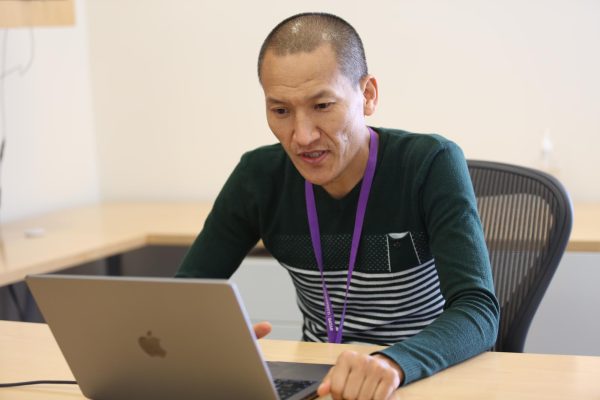Spotlight: The impact of financial aid cuts on student lives
When Taimur Rizwan started his final year at Carnegie Mellon University in Qatar in fall 2016, the financial aid office at Qatar Foundation informed him that his aid had been cut in half. Rizwan appealed his decision and continued taking classes that semester, but when his appeal got rejected, he was unable to pay the full tuition and could not complete his courses. Rizwan took a leave-of-absence from CMU-Q and returned to his home in Pakistan, waiting for the next financial aid cycle to begin so he could reapply.
“There should be a guarantee of financial aid cover for the entire period of study, unless there are extraordinary changes to one’s financial situation,” Rizwan said, who mentioned that his financial status has not changed since he first applied for aid in his freshman year.
Rizwan is not the first student in Education City who had to stop his education because of a reduction in QF financial aid. Several other students had to transfer out of university or take leave-of-absences when aid from QF or their respective university was unavailable, not enough, or cut unexpectedly.
Farah-Soraya Ridanovic is another student who could not afford to cover the cost of tuition without additional financial assistance. After her freshman year at Northwestern University in Qatar in 2014, she applied for QF financial aid and was denied. As a result, Ridanovic transferred out of NU-Q and moved to Europe, where she is now studying at Maastricht University in the Netherlands. She is currently paying tuition without any governmental or institutional financial assistance, which she said is affordable because she is an EU citizen and pays less.
Ridanovic said she was never given a reason for why she was denied aid, despite asking several times for one. She said the QF financial aid office staff were rude and made her case seem like a waste of their time.
“At one point I was locked in the room with all the people in that office, only to be verbally assaulted,” Ridanovic said. “They did not allow my parents inside [the room] nor the friends I brought as support. I do not even know what they were yelling about as it was mostly in Arabic.”
The QF financial aid office did not return requests for comment from The Daily Q.
Similarly, Rizwan said he asked the QF financial aid office why his aid was cut in half, but did not get an answer. He provided the QF financial aid office proof of his inability to cover the other 50 percent of the tuition and reappealed his decision. When Rizwan received the final rejection, his family attempted to pay for the remainder of the cost, but could not manage to. The semester was almost at an end, but Rizwan had to leave without having completed his courses.
“We had to sell off all our property to pay off my college debts,” Rizwan said, referring to the money that his family had planned to reserve for his two siblings’ weddings and his parents’ retirement savings. “It has impacted me a great deal,” he added, mentioning that he can also no longer afford to get married after graduation as he had anticipated to.
Students enrolled in any EC university who demonstrate financial need are able to apply for financial aid through Hamad Bin Khalifa University Student Financial Services. On behalf of Qatar Foundation, the program offers loans and scholarships to those eligible.
Other options for aid are offered through students’ respective universities, U.S. governmental aid, the Qatari government and private sponsorships, according to Barry Sexton, director of business and finance at NU-Q.
However, when Rizwan reached out to his university, he said CMU-Q did not offer any options for his financial situation. “There is apparently no system – or perhaps willingness – in place to help cases like mine,” he said.
For Ridanovic, she was unaware of the various options available to her besides QF financial aid. She said she still asked NU-Q for help and was referred back to the QF financial aid office. “There aren’t really any other options in Qatar besides QF financial aid,” she said. “At least there wasn’t when I applied.”
It was not until fall of 2015 when NU-Q started providing internal financial assistance to students in the forms of grants, in addition to the existing sources of aid from QF, said Sexton. According to him, NU-Q students are informed and advised of the financial assistance that is available to them throughout their time at NU-Q, beginning at the early stages of their admission. Since this new policy was put in place, he said he hasn’t encountered a situation in which additional finance was not provided to a student who had lost QF aid.
“There were a few situations where we ended up providing a few students [whose aid was cut] more aid than they had been receiving [from QF],” Sexton added.
Afnan Nehela was an NU-Q student who also transferred out of NU-Q in 2014 because she did not receive enough financial aid. She applied for aid in her first year, but she said QF did not provide enough to cover her tuition costs. For her second year, Nehela tried again, but the loan amount did not increase. She could not cover the rest on her own for another year, so she appealed several times but in vain. According to Nehela, she reached out to NU-Q for help but NU-Q did not provide internal support at that time since it was before 2015.
“I was forced to transfer schools in order to save money and be able to afford [my education],” Nehela said. She is now studying in the United States at the University of Massachusetts Amherst. Nehela and her family are able to pay for the full tuition themselves at the state university, which she said is affordable since she is a U.S. citizen and pays in-state tuition costs.
“NU-Q was not contractually able to independently review and provide any financial assistance prior to fall of 2015,” Sexton said. He added that he cannot comment on the individual cases of Ridanovic and Nehela due to privacy reasons.
Some students said that the high cost of tuition at EC campuses, the difficulty to find sources of aid and the debt that they accumulate is more than just a financial burden. It is an added stress as well.
In Rizwan’s case, he said he has carried within himself a “disgusting feeling” since the beginning of his university education, knowing that his family had to go into debt because of it. “I would often approach my professors and counselors describing what I felt and they tried their best to sympathize with me, but that was the most they could do,” Rizwan said, “A few months later I found my way into a deep psychological depression…because of the suffering finances of my family.”
For Ridanovic, it was hard to leave NU-Q and her new friends. She also felt that she was disappointing her professors whom she had made plans to work with in the future. “I was a straight-A student and still didn’t have an opportunity to reapply for financial aid,” she added.
Despite this, the students said they have managed to deal with the consequences of the lack of enough financial aid.
After her “traumatizing” financial aid experience, Ridanovic decided to change her field of study. “No one should have to go through the experience I had,” she said. “Now I study law to right the wrongs such as this.” Ridanovic is currently on a semester abroad in Madrid and is expected to graduate this summer.
Nehela also faced the same feelings and was able to overcome them. “First I was annoyed and upset,” she explained. “However, it [transferring] was for the better definitely.” She is expected to graduate next year with degrees in journalism and pre-medicine.
During his first three years of receiving financial loans, Rizwan managed to minimize his stress by getting involved on campus. He became the president of the Residence Hall Association, the vice-captain of CMU-Q’s football team, and he took part in a leadership challenge to summit Mount Kilimanjaro.
“This ordeal has certainly taught me a lot, especially the depression part. I mean, I can complain about stuff like financial aid and other things that weren’t in my hands, but that will do more harm than good,” Rizwan said. “For whatever happened, [taking a leave-of-absence] was definitely the best thing that could have come out of this,” he added.
Education City students, like Rizwan, are currently awaiting their financial aid decisions for the 2017-18 academic year.
TDQ reached out to the CMU-Q and QF financial aid offices multiple times but did not receive any comments for this story.


















